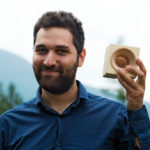Emily and us: self-discovery during Covid
True loneliness may become isolation or, as the American poet taught us, a unique chance for discovery
In flaming lines astoundingly related to the present, Emily Dickinson claims that no solitude can be compared to that “of a soul admitted to itself”
During the first weeks of the pandemic, trying to introduce the great American poet, who lived a great part of her existence in voluntary exile (at first in her house and then, in her own room), to my students secluded in quarantine, I challenged them to live this “suspended time” as a chance to be admitted to their own intimacy and not as a tomb.
The desire to escape from the present moment into a nostalgic past or to follow the wishful direction of an imaginary future, is a risk lurking in every circumstance, thus preventing us from keeping our eyes wide open to see every crumb of meaning or good which nourishes life, now.
But what would I answer to my pupils If they asked me, their teacher, with disenchanted irony or sincere expectation, which good or meaning I have been able to recognise in the days of the pandemic? What novelty have I found in a time when – as my student Salvo suspected – «we have the impression that today is the same as yesterday and tomorrow the same as today»?
Of course, we all have discovered, unexpectedly, how vulnerable we are while the armour of technology and science we proudly wear has shown its inability to protect us. What is more, this ‘Phase 2’ of the pandemic, as Italy has been calling coexisting with Covid-19, is teaching us to conjugate the words ‘freedom’ with ‘responsibility’ and, therefore, to recognise that there is no private behaviour whose effects do not affect the whole community. But it is the events dealing with everyday life and the people that are most familiar fill us with surprise.
In my case this is my father.
In his childhood he made two or three unlucky attempts to pass from the second class of his elementary school studies to the third. Now, at the venerable age of 85, having devoted his strong arms and calloused hands to Swiss factories as well as to the harsh Sicilian countryside, secluded in his house in Mineo, my dad has read his first book! The Life of Father Pius.
One hundred and fifty long pages, read aloud, from beginning to end. But that is not all. To his own surprise, he discovered that, at the bottom of the page, the sentence and its meaning continues onto the following page and, even if his eyes ‘are burning’, he cannot stop reading. “The book’s calling me” he says. “It’s not that I understand everything – admits a man who has scarcely practiced the virtue of humility in his years – But, beautiful!”.
Meanwhile, he finished his second book and, on the wings of enthusiasm, he has started reading about the death of Giovanni Falcone at the Capaci bombing. Sometimes he gets confused by the events, sometimes he is moved.
On Facebook, my former colleague Gaudenzia told me that, despite the covid-19 infection, something is unpredictable also happening between students and their teachers.
Instead of complaining about the apparently inaccessible paths she has to climb up to reach her pupils on remote platforms, following strange urls, she suggested that her class write a Decameron 2020. “Every week a short story, one writing – she explains – and on Saturdays a reading on Zoom of their ‘literary production’”. Like Chaucer, she is also part of the company and “it’s a fantastic experience. Maybe the best, in two years to forget”. A new beginning at a moment where the desert of indifference seemed to stretch out indefinitely.
The explosion of all sorts of needs for a huge number of families has brought new life to many local charity associations linked to the network of Banco Alimentare. When times were at their worst, many friends got involved again. “It makes me feel the destiny of my life is in a company of friends” affirms one of them. “Call it solidarity”, you will say. Of course, but there is more.
Paradoxically, solitude, if experienced at its roots, when not lived as separation, leads to the discovery of something other than ourselves: something mysterious and unavoidable which is beside us and yet we do not see. Books, relationships we considered already withered, gratitude for a friendship that never abandons us.
There is more! Always. We are in a story we have not written. We can get passionately involved in it just because, as my father discovered, the meaning of the story does not end at the bottom of the page. It continues in the following, whatever may have happened up to now.



